#josé silva
Explore tagged Tumblr posts
Text
José x Komako‼️‼️‼️

#yandere simulator#yansim#yandere sim#ys#1980s mode#yandere simulator 1980s mode#art#josé silva#joze shiuba#komako funakoshi#josé x komako#joze x komako
27 notes
·
View notes
Text

José Graziano da Silva
#suitdaddy#suiteddaddy#suit and tie#men in suits#suited grandpa#suitedman#suitedmen#suit bulge#suitfetish#business suit#daddy#silverfox#silver fox#suits#americans#Brazilian man#Brazilian men#homem brasileiro#José Graziano da Silva#Jose Graziano da Silva
31 notes
·
View notes
Note
I've always wanted to ask since it's never definite and changes based on adaption, but what's your preference for Panchito's last name? Pistoles? Romero Miguel Francisco Quintero Gonzalez III? No last name at all? Some combination like Pistoles being a stage name? If he lived with José in Rio long enough could he eventually adopt Carioca? It seems to differ for everyone which is one of the cool fandom things
HI! SO- I can safely say I don't consider Panchito's surname to be "Pistoles". To me, that's his stage name and an American stage name at that!! Getting a little meta for a bit here, the name "Pistoles" was chosen for the character simply because it was easier for the American audience to pronounce it with an "e" instead of the original "a" in the spanish word for "pistols". So, going back in universe, imagine that in the 1940s when the Three Caballeros commissioned a small series of posters with the little money they had, they all came with a typo in Panchito's name because of the language barrier/miscommunication with the print shop. But in the end Panchito kinda digged that XDDD "NO, LEAVE IT IN!!! It makes it new and exciting, guys!!!" Paco might say, upbeat and always seeing the bright side of every situation. I like to imagine that his nickname in his hometown and stage name in México was "Panchito Pistolas" and just "Panchito" for family and friends. As for his actual surname I really dig the House of Mouse version, (Panchito Romero Miguel Junípero Francisco Quintero González Tercero) even if it means he would be Francisco twice XD, tbh not the weirdest naming decision to happen in latin america by far...
AS FOR JOSÉ!!! Well, first, I don't think that either one of them would adopt any of each others' surnames (but this is my own bias because I kinda hate the whole changing names for marriage and the burocracy it entails-) Also I'm in the fence whether to consider "Carioca" to be José's real surname or not. This is very much me overanalyzing the character but we are in the "overanalyzing stupid characters website" so whatever- The thing with José is that, here in Brazil, "Zé Carioca" reads simply as a very descriptive nickname meaning "guy from Rio". Reason why I can totally see it being just a nickname that later got turned into a stage name for him. So, it also doesn't make sense to me for Panchito to have it in his name, that Bitch (affectionate) isn't carioca! But anyways, just to clarify, can "Carioca" be a surname? Yes, absolutely!! It is, in fact, a surname that exists in Brazil although it's not a very popular one. But when you consider the character's history and also Zé's cousins (the joke with them being that each has a regional name after "Zé" indicating where they are from), the idea you get is that Carioca is not a family name but a label. The comics have also shown us some of Zé's relatives that could indicate what other alternative surnames he may have but, mind you, none of this means that Zé would have inherited these particular surnames! So we're still in headcanon valley here. First, there are Zé's two grandads: Zé Paiva (or Zeca Paiva) and Josué Carioca. We don't know which one is from mother's side or father's side tho. And later there are more relatives, including two grandmas, one from the Dutch comics, Oma Carioca (aka vovó Carioca), and the other from a recent Culturama release, Isaura Araripe. Once again we don't know which one represents the mother's side and which represents the father's side. In the Culturama special story tho, José's family, including himself, identify as "Araripe" (a real surname but also a play on the word "arara" meaning "macaw" in portuguese).
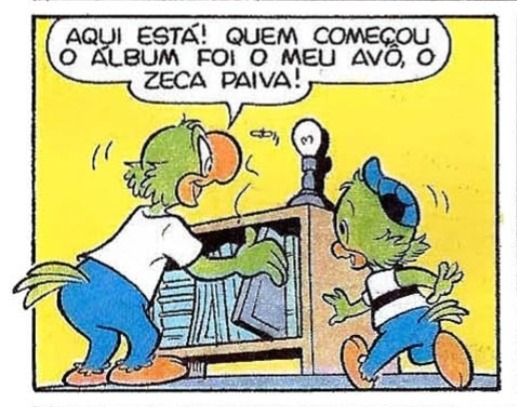
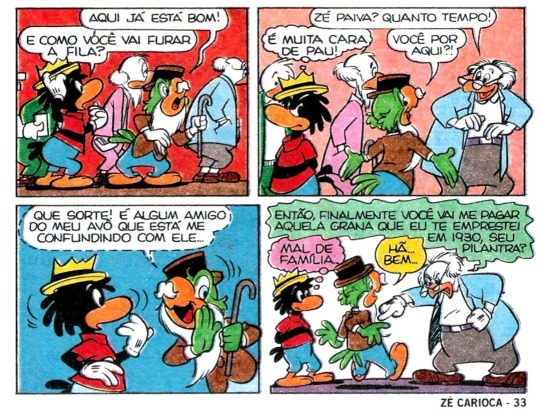
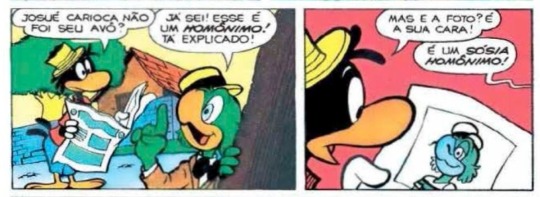
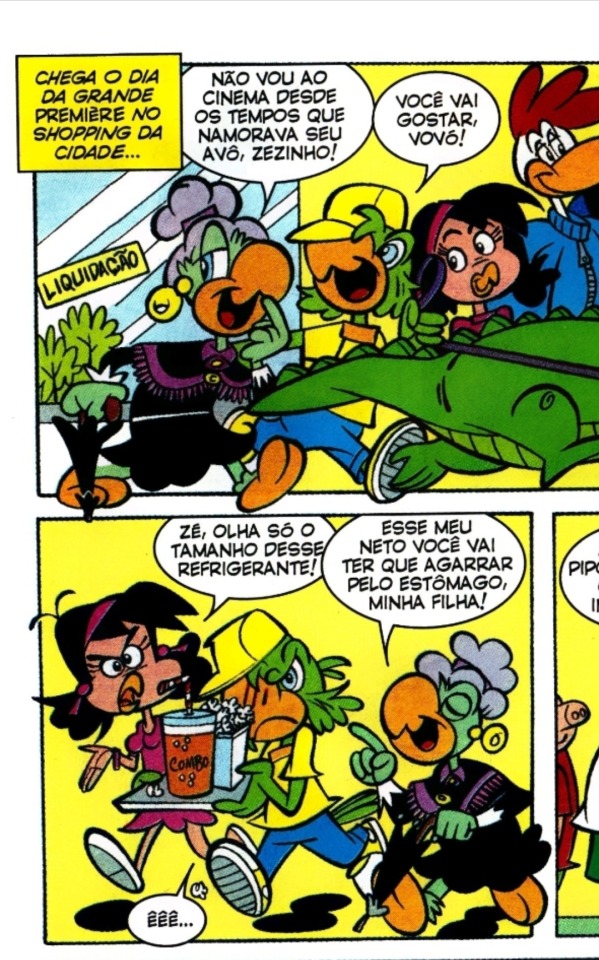
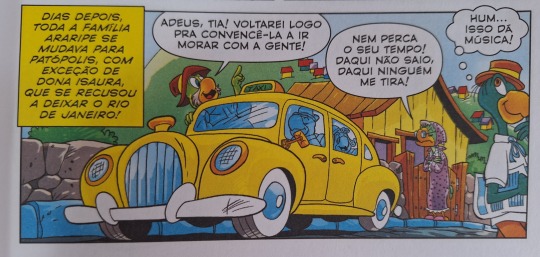
So, we coooould make Zé Carioca's registry name be any mix of these like "José Araripe Carioca" or "José Paiva Araripe" OR "José Carioca Araripe" OR "José Paiva Carioca" OOOOR if you're a fan of long names "José Carioca Araripe Paiva". The mother's family name comes first in Brazil but since we don't know which one that would be, you can pick and choose to your heart's content. I said all that BUT I'm also a big fan of the "descriptive" nature of "José Carioca" as a name for the character, because it almost grants him a kind of anonimity. There are millions of Zés in Brazil and millions of cariocas (in relation to place of birth) too. Which makes him LITERALLY JUST A GUY!!! Just a little guy commiting scams all around and nobody fucking knows his real name-- A REAL POWER MOVE in my opinion. That said, I would also find it very funny if he had the most WIDELY USED Brazilian surname and ONLY THAT, making him "José Silva" or "José da Silva", so he could maintain that "generic guy" energy in his registry name as well.
#I think Zé should have “Silva” in his name so he could really be the QUINTESSENTIAL Brazilian little guy#I also looove to headcanon zé as an orphan so imagine if he grows up not even being sure of what his actual surnames were#he gets a state provided one IF THAT and it's Silva#because in the 40s there were people going around w no surnames no registry no nothing#sadly invisible to the government#the three caballeros#josé carioca#panchito pistoles#text post#ask#anonymous
100 notes
·
View notes
Text









Casa de Serralves à Porto, Portugal, construite entre 1925 et 1944 par le 2éme comte de Vizela, Carlos Alberto Cabral et conçue par l'architecte José Marques da Silva (1869-1947). - source Matthias Terrettaz.
20 notes
·
View notes
Text
A história ignorada do Brasil
🇧🇷����🇹 Durante três séculos, a Inquisição portuguesa teve uma presença marcante no Brasil, apesar de não ter um tribunal fixo no país. Os suspeitos de heresia, muitos deles cristãos-novos, eram presos por agentes do Tribunal do Santo Ofício e levados acorrentados a Portugal, onde eram julgados. Esses julgamentos muitas vezes resultavam em sentenças severas, como cárcere perpétuo, trabalho forçado nas galeras ou morte na fogueira. O arquivo da Inquisição permaneceu secreto até a década de 1960, e grande parte de sua documentação ainda precisa ser estudada. Entre as vítimas da Inquisição estão brasileiros ilustres, como o poeta Antônio José da Silva e o patriarca da independência, José Bonifácio de Andrada e Silva. Com a recente abertura dos arquivos, uma nova luz é lançada sobre essa parte ignorada da história do Brasil, revelando que muitos brasileiros, especialmente no Nordeste, têm origens judaicas, e alguns ainda mantêm tradições culturais judaicas.
youtube
🇺🇸 For three centuries, the Portuguese Inquisition had a significant presence in Brazil, despite not having a fixed tribunal in the country. Suspected heretics, many of them New Christians, were arrested by agents of the Holy Office Tribunal and taken in chains to Portugal, where they were judged. These trials often resulted in severe sentences, such as life imprisonment, forced labor on royal galleys, or execution by burning. The Inquisition's archive remained secret until the 1960s, and much of its documentation still needs to be studied. Among the Inquisition's victims were notable Brazilians, such as the poet Antônio José da Silva and José Bonifácio de Andrada e Silva, the patriarch of Brazil's independence. With the recent opening of the archives, new light is shed on this forgotten chapter of Brazil's history, revealing that many Brazilians, especially in the Northeast, have Jewish ancestry, with some still maintaining Jewish cultural traditions.

#brasil#Brazil#inquisição#processo#brasileiros#história#Inquisição portuguesa#culturais judaicas#origens judaicas#Antônio José da Silva#José Bonifácio de Andrada e Silva#heresia#Portuguese Inquisition#New Christians#cristãos-novos#cultura judía#judaism#judaísmo#jumblr#judíos#antisemitismo#antisemitism#antijudaísmo#antijudaism#sephardic#sefardí#sephardic jews#sephardim#Youtube#portugal
10 notes
·
View notes
Text

João Cristino da Silva, Tomás da Anunciação, Victor Bastos
José Rodrigues, António Manuel da Fonseca, Francisco Metrass
(c. 1890)
#joão cristino da silva#tomás da anunciação#victor bastos#josé rodrigues#antónio manuel da fonseca#francisco metrass
2 notes
·
View notes
Text
Tú no lo sabes… mas yo he soñado
entre mis sueños color de armiño,
horas de dicha con tus amores
besos ardientes, quedos suspiros
cuando la tarde tiñe de oro
esos espacios que juntos vimos,
Cuando mi alma su vuelo emprende
a las regiones de lo infinito
aunque me olvides, aunque no me ames
aunque me odies, ¡sueño contigo!
José Asunción Silva
57 notes
·
View notes
Text

3 notes
·
View notes
Text

Ausencias…
#poesía#poema#poeta#poets on tumblr#poesia#poetry#josé miguel silva#escritores mexicanos#josesilva3001#jm silva#cosas tristes#triste
32 notes
·
View notes
Text
Cuba Arrests 17 linked to Russian Trafficking Network Recruiting Cubans for War in Ukraine
As reported in yesterday’s post to this blog, the Cuban Government on September 4th stated that it “has detected and it is working to neutralize and dismantle a human trafficking network that operates from Russia in order to incorporate Cuban citizens living there and even some living in Cuba, into the military forces that participate in military operations in Ukraine. Attempts of this nature…
View On WordPress
#Cuba#Cuba Ministry of Foreign Affairs (Minrex)#Cuba Ministry of the Interior (Minint)#Cuba&039;s Department of the General Directorate of Criminal Investigation#Cuba&039;s Directorate of Criminal Proceedings of the Attorney General&039;s Office#Cubavision#Eva Yelina Silva Walker#human trafficking#José Luis Reyes Blanco#Lieutenant Colonel Frank Hernández Estrada#Russia#Ukraine
13 notes
·
View notes
Text

Crystal Fairy & the Magical Cactus (Crystal Fairy y el cactus mágico), Sebastián Silva (2013)
#Sebastián Silva#Michael Cera#Gaby Hoffmann#Juan Andrés Silva#Agustín Silva#José Miguel Silva#Cristián Petit Laurent#Diego Macho Gómez#Sofía Subercaseaux#2013
5 notes
·
View notes
Text
Imagine if when Frozen came out Ken and José just randomly got an Elsa cosplay for Reiichi and made him sing let it go
Welcome to another episode of Reiichi being the big brother who is always suffering /j
#yandere simulator#yansim#yandere sim#ys#1980s mode#yandere simulator 1980s mode#ayten's thoughts#reiichi tanaami#josé silva#joze shiuba#hose shiruba#ken kyonashima#frozen#yandere simulator headcanons#my brain isnt ok probably
21 notes
·
View notes
Text

#filosofia Clínica e Cinema#olga hack#márcio José andrade da silva#gabinete 63 curiosidades bibliográficas
2 notes
·
View notes
Text

Maison de Serralves, Porto, Portugal Conçu par l'architecte français Charles Siclis et l'architecte portugais José Marques da Silva c. 1938. source Casey Dunham via Art Deco.
35 notes
·
View notes
Text
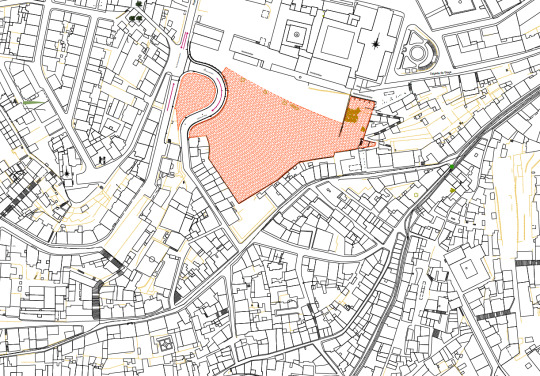
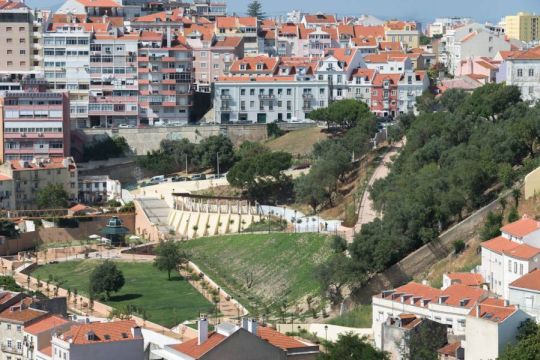
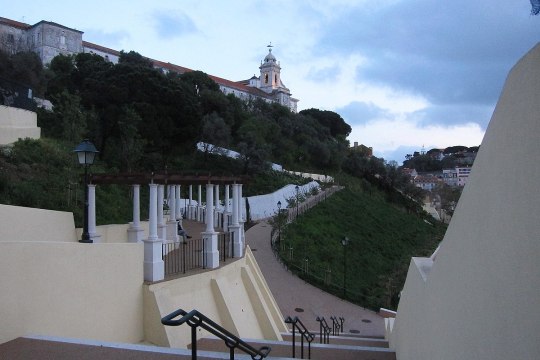
Cristina Duarte+José Cornelio da Silva, Jardim da Cerca da Graça, 2012
3 notes
·
View notes
Text
SAINT OF THE DAY (May 13)
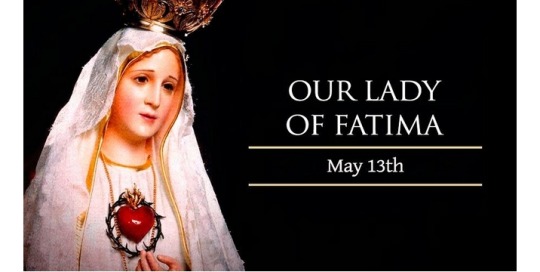
May 13 is the anniversary of the apparition of Our Lady to three shepherd children in the small village of Fatima in Portugal in 1917.
She appeared six times to Lucia dos Santos (9) and her cousins Francisco Marto (8) and his sister Jacinta Marto (6) between 13 May 1917 and 13 October 1917.
The story of Fatima begins in 1916 when, against the backdrop of the First World War that had introduced Europe to the most horrific and powerful forms of warfare yet seen, and a year before the Communist revolution would plunge Russia and later Eastern Europe into six decades of oppression under militant atheistic governments, a resplendent figure appeared to the three children who were in the field tending the family sheep.
“I am the Angel of Peace,” said the figure, who appeared to them two more times that year, exhorting them to accept the sufferings that the Lord allowed them to undergo as an act of reparation for the sins that offend Him and to pray constantly for the conversion of sinners.
Then, on the 13th day of the month of Our Lady, May 1917, an apparition of ‘a woman all in white, more brilliant than the sun’ presented itself to the three children saying, “Please don’t be afraid of me. I’m not going to harm you.”
Lucia asked her where she came from and she responded, “I come from Heaven.”
The woman wore a white mantle edged with gold and held a rosary in her hand.
The woman asked them to pray and devote themselves to the Holy Trinity, and to “say the Rosary every day to bring peace to the world and an end to the war.”
She also revealed that the children would suffer, especially from the unbelief of their friends and families, and that the two younger children, Francisco and Jacinta, would be taken to Heaven very soon.
However, Lucia would live longer in order to spread her message and devotion to the Immaculate Heart.
In the last apparition, the woman revealed her name in response to Lucia’s question: “I am the Lady of the Rosary.”
That same day, 70,000 people had turned out to witness the apparition, following a promise by the woman that she would show the people that the apparitions were true.
They saw the sun make three circles and move around the sky in an incredible zigzag movement in a manner, which left no doubt in their minds about the veracity of the apparitions.
José Alves Correia da Silva, Bishop of Leiria, declared the events worthy of belief on 13 October 1930. They have been approved by the Church as authentic.
The messages Our Lady imparted during the apparitions to the children concerned the violent trials that would afflict the world by means of war, starvation, and the persecution of the Church and the Holy Father in the twentieth century, if the world did not make reparation for sins.
She exhorted the Church to pray and offer sacrifices to God in order that peace may come upon the world and that the trials may be averted.
Our Lady of Fatima revealed three "prophetic secrets.”
The first two of which were revealed earlier and refer to the vision of hell and the souls languishing there, the request for an ardent devotion to the Immaculate Heart of Mary, the prediction of the Second World War, and finally, the prediction of the immense damage that Russia would do to humanity by abandoning the Christian faith and embracing Communist totalitarianism.
The third “secret” was not revealed until the year 2000.
It referred to the persecutions that humanity would undergo in the last century:
“The good will be martyred; the Holy Father will have much to suffer; various nations will be annihilated'”.
The suffering of the popes of the 20th century has been interpreted to include the assassination attempt on Pope John Paul II in 1981, which took place on May 13, the 64th anniversary of the apparitions.
The Holy Father attributed his escape from certain death to the intervention of Our Lady:
“... it was a mother's hand that guided the bullet's path and in his throes the Pope halted at the threshold of death.”
What is the central meaning of the message of Fatima? Nothing different from what the Church has always taught:
It is, as Cardinal Ratzinger, now Pope Benedict the XVI, has put it, “the exhortation to prayer as the path of “salvation for souls” and, likewise, the summons to penance and conversion.”
Perhaps the most well known utterance of the apparition of Our Lady at Fatima was her confident decalaration that “My Immaculate Heart will triumph.”
Cardinal Ratzinger has interpreted this utterance as follows:
“The Heart open to God, purified by contemplation of God, is stronger than guns and weapons of every kind.
The fiat of Mary, the word of her heart, has changed the history of the world, because it brought the Saviour into the world—because, thanks to her Yes, God could become man in our world and remains so for all time.
The Evil One has power in this world, as we see and experience continually; he has power because our freedom continually lets itself be led away from God.
But since God himself took a human heart and has thus steered human freedom towards what is good, the freedom to choose evil no longer has the last word.
From that time forth, the word that prevails is this: “In the world you will have tribulation, but take heart; I have overcome the world” (Jn 16:33).
The message of Fatima invites us to trust in this promise.
#Our Lady of Fatima#Portugal#Our Lady of the Holy Rosary of Fátima#Blessed Virgin Mary#Lucia dos Santos#Francisco and Jacinta Marto#José Alves Correia da Silva#Marian apparition#Cova da Iria#Feast of Our Lady of Fatima#Three Secrets of Fátima
5 notes
·
View notes